May 23, 2016 •
Department of Justice Investigating Virginia Governor
Gov. Terry is the subject of a federal investigation surrounding contributions to his gubernatorial campaign. The Department of Justice is looking into donations received while McAuliffe was a board member of the Clinton Global Initiative, a charitable foundation set up […]
Gov. Terry 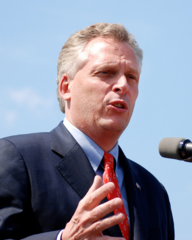 is the subject of a federal investigation surrounding contributions to his gubernatorial campaign. The Department of Justice is looking into donations received while McAuliffe was a board member of the Clinton Global Initiative, a charitable foundation set up by former President Bill Clinton.
is the subject of a federal investigation surrounding contributions to his gubernatorial campaign. The Department of Justice is looking into donations received while McAuliffe was a board member of the Clinton Global Initiative, a charitable foundation set up by former President Bill Clinton.
Among many contributions of interest, the FBI is focusing on $120,000 from a Chinese businessman, Wang Wenliang. Contributions from foreign nationals are illegal, though Wang holds permanent U.S. resident status. Wang has been known for his contributions in the U.S., giving to Clinton’s foundation as well as to universities and political causes in other states.
May 11, 2016 •
Wednesday Government Relations News
Campaign Finance “Donald Trump, in Switch, Turns to Republican Party for Fund-Raising Help” by Maggie Haberman, Ashley Parker, and Nick Corasaniti for New York Times California: “Company Donates Free Billboards to Englander as L.A. Weighs New Sign Regulations” by David […]
 Campaign Finance
Campaign Finance
“Donald Trump, in Switch, Turns to Republican Party for Fund-Raising Help” by Maggie Haberman, Ashley Parker, and Nick Corasaniti for New York Times
California: “Company Donates Free Billboards to Englander as L.A. Weighs New Sign Regulations” by David Zahniser for Los Angeles Times
California: “‘I Have, in Fact, Done the Crime’: Rep. Ami Bera’s father admits illegal campaign contributions” by John Myers for Los Angeles Times
Pennsylvania: “Allentown Engineer’s Plea in FBI Probe Revealed” by Emily Opilo and Peter Hall for Morning Call
Ethics
“Conservatives Accuse Facebook of Political Bias” by John Herrman and Mike Isaac for New York Times
“Senior Gray Advisor Sentenced to Six Months for 2010 Mayoral ‘Shadow’ Campaign” by Spencer Hsu and Ann Marimow for Washington Post
Kentucky: “Kentucky’s Two Most Recent Governors Are Feuding, and It’s Ugly and Very Public, Too” by Adam Beam (Associated Press) for U.S. News & World Report
Wisconsin: “Kevin Kennedy Stepping Down as Head of Embattled Elections, Ethics Board” by Patrick Marley for Milwaukee Journal Sentinel
Elections
“Our Fictional Pundit Predicted More Correct Primary Results Than Nate Silver Did” by Virgil Texas for Washington Post
“Hillary Clinton Gives U.F.O. Buffs Hope She Will Open the X-Files” by Amy Chozick for New York Times
“Sanders, Trump Easily Win West Virginia Primary; Trump Picks Up Nebraska Too” by Abby Phillip, John Wagner, and Anne Gearan for Washington Post
May 5, 2016 •
Ask the Experts – Aggregation of Contribution Limits
Q. My employer is a wholly owned subsidiary of a parent corporation. Does a parent corporation, a subsidiary, or other affiliated entity have its own contribution limit or must the contributions be aggregated and have a shared limit? A. This […]
 Q. My employer is a wholly owned subsidiary of a parent corporation. Does a parent corporation, a subsidiary, or other affiliated entity have its own contribution limit or must the contributions be aggregated and have a shared limit?
Q. My employer is a wholly owned subsidiary of a parent corporation. Does a parent corporation, a subsidiary, or other affiliated entity have its own contribution limit or must the contributions be aggregated and have a shared limit?
A. This is a very important question that must be addressed when making a contribution, particularly when there is a hierarchy to the corporate structure. If a limit is shared, the parent, subsidiary, or other affiliated entity must have an open line of communication when it comes to making political contributions.
In New York, each affiliated or subsidiary corporation, if a separate legal entity, has its own limit.
In California, contributions made by certain combinations of affiliated individuals, entities, and committees must be aggregated. It all comes down to a matter of control:
- The contributions of an entity whose contributions are directed and controlled by any individual must be aggregated with contributions made by that individual and any other entity whose contributions are directed and controlled by the same individual.
- If two or more entities make contributions directed and controlled by a majority of the same persons, the contributions of those entities must be aggregated.
- Contributions made by entities majority-owned by any person must be aggregated with the contributions of the majority owner and all other entities majority-owned by that person, unless those entities act independently in their decision to make contributions.
So in California, a parent and subsidiary share a contribution limit if the decision to make a contribution is directed and controlled by a majority of the same persons. If the parent and subsidiary act wholly independently of each other in deciding to make a contribution, the parent and subsidiary each have their own limit.
In New Jersey, if a corporation has subsidiaries, affiliates, branches, or locals, then the contributions of these organizations cannot exceed the applicable contribution limit in the aggregate. Two or more corporations will be conclusively deemed to be affiliated if:
- Any individual, corporation, partnership, company, association, or other entity owns, directly or indirectly, more than a 30 percent interest in each of such corporations; or
- One such corporation owns, directly or indirectly, more than a 30 percent interest in the other such corporation.
These are just a few examples of aggregation of limits. As we always advise, verify the rules in your state before making political contributions.
![]()
You can directly submit questions for this feature, and we will select those most appropriate and answer them here. Send your questions to: experts@stateandfed.com.
(We are always available to answer questions from clients that are specific to your needs, and we encourage you to continue to call or e-mail us with questions about your particular company or organization. As always, we will confidentially and directly provide answers or information you need.) Our replies to your questions are not legal advice. Instead, these replies represent our analysis of laws, rules, and regulations.
May 2, 2016 •
Nassau County, NY Implements Disclosure Requirements
Vendors and lobbyists are now required to disclose campaign contributions and affirm the disclosed contributions were made without the expectation of a governmental benefit in return. The late-2015 amendment requires disclosure of contributions to county officials and county-level candidates if […]
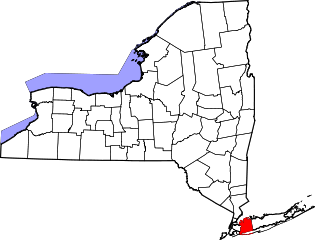 Vendors and lobbyists are now required to disclose campaign contributions and affirm the disclosed contributions were made without the expectation of a governmental benefit in return. The late-2015 amendment requires disclosure of contributions to county officials and county-level candidates if made on or after April 1, 2016.
Vendors and lobbyists are now required to disclose campaign contributions and affirm the disclosed contributions were made without the expectation of a governmental benefit in return. The late-2015 amendment requires disclosure of contributions to county officials and county-level candidates if made on or after April 1, 2016.
While the amendment aims at promoting greater transparency of the procurement process, some have argued contributions to political parties and noncandidate committees allow contributors to remain out of public view.
March 18, 2016 •
News You Can Use Digest – March 18, 2016
National: Even as Political Spending Explodes, Disclosure Remains Hazy CTNewsJunkie.com – Mary Spicuzza (Milwaukee Journal Sentinel) and Jeremy White (Sacramento Bee) | Published: 3/15/2016 So-called dark money spending is expected to explode during this presidential election year. Congress could require more […]

National:
Even as Political Spending Explodes, Disclosure Remains Hazy
CTNewsJunkie.com – Mary Spicuzza (Milwaukee Journal Sentinel) and Jeremy White (Sacramento Bee) | Published: 3/15/2016
So-called dark money spending is expected to explode during this presidential election year. Congress could require more disclosure about who is financing campaigns, but it has made no move to do so. Attempts to force more disclosure from outside special interest groups have succeeded in some states. But there is a limit to what states can do, since they do not have oversight of spending on federal races, which are consistently the costliest elections. While some state election agencies have moved to make more donor information public, they often struggle to win support from lawmakers, said Denise Roth Barber of the National Institute on Money in State Politics.
Federal:
Donald Trump’s Presidential Run Began in an Effort to Gain Stature
New York Times – Maggie Haberman and Alexander Burns | Published: 3/12/2016
During his remarks at the White House Correspondents’ Association Dinner in 2011, President Obama lampooned Donald Trump. After the dinner ended, Trump quickly left, appearing upset. That evening of public abasement accelerated Trump’s efforts to gain stature within the political world. And it captured the degree to which his campaign is driven by a yearning sometimes obscured by his bluster and bragging: a desire to be taken seriously. That desire has played out over the last several years within a Republican Party that placated and indulged him, and accepted his money and support, seemingly not grasping how determined he was to become a major force in American politics. In the process, the party bestowed upon Trump the kind of legitimacy that he craved, which has helped him pursue a credible bid for the presidency.
Rubio’s Demise Marks the Last Gasp of the Republican Reboot
Washington Post – Robert Costa and Philip Rucker | Published: 3/15/2016
U.S. Sen. Marco Rubio dropped out of the presidential race after losing the Florida primary to Donald Trump and failing to unite the Republican establishment against the front-runner. Since Mitt Romney’s loss in 2012, the Republican National Committee and leading voices at think tanks and editorial boards have charted a path back to the White House based on inclusive rhetoric and a focus on middle-class issues. Nobody embodied that vision better than Rubio, a standard-bearer for conservative orthodoxy who readily embraced the proposals of the right’s elite thinkers. But his once-promising candidacy, as well as the conservative reform movement’s playbook, was spectacularly undone by Trump and his defiant politics of economic and ethnic grievance. The drift toward visceral populism became an all-consuming rush, leaving Rubio and others unable to adjust.
Supreme Court Nomination Drives Groups from Left and Right to Fight
New York Times – Eric Lipton | Published: 3/16/2016
With the selection by President Obama of Merrick Garland to fill the vacancy on the U.S. Supreme Court, advocacy groups from the left and the right are now fully engaged in what both sides agree will be a highly contentious nomination fight, even if the Senate never formally considers the president’s choice. Part of the intensity is a reflection of the enormous and diverse range of special interest groups that have decided to engage in this fight, which will be the first in an age in which social media has become a dominant force. In many cases, the groups have set aside longstanding tensions that have prevented them from teaming up in a unified way.
Wild Card for Trump: Who gets to be a convention delegate?
Washington Post – Karen Tumulty and Jose DelReal | Published: 3/16/2016
With more than half the states having now held their nominating contests, Donald Trump and U.S. Sen. Ted Cruz are directing their attention to a second, shadow election campaign – one that is out of sight and little understood but critical if Republicans arrive at their national convention with Trump short of a majority of delegates. This parallel campaign is to select the individual delegates who will go to Cleveland in July for what could be the first contested convention in more than 60 years. Chosen through a byzantine process in each state, most of the delegates will become free agents if no one wins a majority on the first ballot. The mere prospect that delegates could deny Trump the nomination led him to predict that violence could erupt in such a scenario.
From the States and Municipalities:
California – FPPC Votes to Tighten California Lobbying Regulations
Sacramento Bee – Taryn Luna | Published: 3/17/2016
The California Fair Political Practices Commission (FPPC) voted to narrow a regulation that allows people to avoid identifying themselves as lobbyists by attending Capitol meetings as experts. The regulation has faced scrutiny as a way for former legislators and officials to skirt state rules requiring they wait a year after leaving office to lobby their former colleagues. The changes approved by the FPPC state that the “ride-along” participant must work for the lobbyist employer and can only act as an expert on subject matter related to the legislation under discussion.
California – How a State Senator – Whose Family is in the Taxi Business – Put the Brakes on Two Uber Bills
Los Angeles Times – Liam Dillon | Published: 3/11/2016
San Diego taxi company owner Alfredo Hueso is a frustrated businessperson. He believes state regulations are helping companies like Uber and Lyft rob him of business. And as he complained in a recent letter to the state Senate president, elected leaders are not doing anything to fix the problem. In that battle, though, Hueso has one advantage over the ridesharing companies: his younger brother is state Sen. Ben Hueso, an important advocate in Sacramento for the taxi industry. Since his election to the Legislature more than five years ago, Sen. Hueso has pushed for stiffer regulation of rideshare companies amid a battle playing out all over the country. At the same time, the burgeoning industry has stepped up its attempt to influence policy in Sacramento.
Florida – FBI Agents Blow Lid Off Opa-locka City Hall Corruption Probe
Miami Herald – Jay Weaver, Michael Sallah, and Katie Lepri | Published: 3/10/2016
Federal agents raided Opa-locka City Hall to gather official records, computers, and other evidence in a public corruption probe zeroing in on top public officials, including the mayor and other city commissioners. The FBI’s search follows a two-year investigation into allegations of kickback schemes between government contractors and public officials, according to law enforcement sources familiar with the case. The crackdown comes at a time when Opa-locka, one of Miami-Dade County’s poorest cities, has been struggling with a financial crisis stemming from millions of dollars in uncollected revenue and mismanagement.
Hawaii – Honolulu Ethics Director on Leave after Internal Investigation
Honolulu Civil Beat – Anita Hofschneider | Published: 3/14/2016
Chuck Totto, the Honolulu Ethics Commission’s longtime executive director, is on leave following an independent investigation by the commissioners into the management of the agency’s staff. He has been gone since March 1 and plans to return on April 4. Totto has had a contentious relationship with Mayor Kirk Caldwell and, increasingly, the commission over the last three years.
Hawaii – Passing The Buck: When Hawaii politicians give to each other
Honolulu Civil Beat – Nathan Eagle | Published: 3/15/2016
Hawaii law prohibits candidates from using their own campaign funds to support others running for office. But some state legislators and other officeholders have long gotten around the ban through a loophole that lets them buy up to two tickets to another politician’s fundraiser for an amount often equal to the maximum allowable individual campaign contribution. Now the Legislature is considering a bill that would remove the need to hold a fundraiser and simply allow direct campaign donations between candidates, something critics contend amounts to buying influence.
Michigan – Could More Government Transparency Help Prevent Another Flint?
Christian Science Monitor – Jessica Mendoza | Published: 3/17/2016
The drinking water crisis in Flint, which left about 200 children diagnosed with dangerous levels of lead in their blood, underscored not only officials’ failure to address concerns about the city’s water quality, open government advocates say. It also reflects an overall lack of transparency in Michigan’s government, which two watchdog groups characterized as the worst in the nation. As some, but not all, e-mails related to the decision to switch Flint’s water source have been released, it also has called to question loopholes in the state’s Freedom of Information Act, which some say allowed officials to function with little public oversight. More broadly, the situation has renewed national conversation about the value of the public’s right to know and the role of accountability in effective governance.
New Mexico – Questions Raised about Martinez’s Inaugural Spending
Las Cruces Sun-News – Justin Horwath | Published: 3/14/2016
How the nearly $1 million that Susana Martinez’s inaugural committee raised was spent has remained largely a mystery and was, until recently, among the subjects of a long-running FBI investigation into Jay McCleskey, the governor’s top political adviser. McCleskey’s lawyer said the FBI has dropped its inquiry and no grand jury indictment is forthcoming. Records obtained by The Santa Fe New Mexican provide details into the committee’s spending, including more than $130,000 that went to companies connected to McCleskey. The documents also provide strong evidence that, despite the committee’s promises to the contrary, some of the 2010 inaugural money was used for fundraising for Martinez’s 2014 re-election campaign. The committee had promised to donate all unspent money to charity.
New York – Suit to Close LLC Loophole Tossed
Albany Times Union – Chris Bragg | Published: 3/16/2016
A judge has dismissed a challenge to the New York Board of Elections’ treatment of limited liability companies (LLCs). The board treats LLCs as individuals for the purpose of determining campaign contribution limits, which allows those who control many of them give politicians far more than the caps that apply to other individuals. The Brennan Center for Justice brought a case challenging this interpretation. State Supreme Court Justice Lisa Fisher dismissed the case, finding the statute of limitations against the 1996 board decision had passed. She also wrote that the treatment of LLCs “has all the hallmarks of a political question best suited for resolution through legislative action.”
Washington – Judge Finds Grocery Group Violated Campaign Laws in 2013
Tacoma News-Tribune – Donna Gordon Blankinship (Associated Press) | Published: 3/11/2016
A judged ruled the Grocery Manufacturer’s Association (GMA) violated Washington’s campaign finance disclosure laws by hiding the identities of corporate donors that were funding efforts to defeat a food labeling initiative in the state. But Superior Court Judge Anne Hirsch said the case has to go to trial to determine what fine the group will pay; the amount depends on whether the violation was intentional. The GMA raised $14 million from corporations to fight Initiative 522 and then donated $11 million in the organization’s name. State Attorney General Bob Ferguson sued the association in October 2013.
Washington – Voters Could Get $150 to Give to Candidates under Proposed Initiative
Seattle Times – Jim Brunner | Published: 3/14/2016
Washington voters would be allowed to make $150 in taxpayer-funded donations to legislative candidates every two years under a ballot initiative proposal. Backers of the measure, aimed at the November 2016 ballot, say it would curb the influence of moneyed special interests by creating the new public campaign financing system, modeled in part on a “Democracy vouchers” initiative approved by Seattle voters last year. It also would make a host of changes to state campaign finance and lobbying laws, including a $100 limit on campaign donations by government contractors and lobbyists to candidates for offices with power to benefit them.
 State and Federal Communications produces a weekly summary of national news, offering more than 60 articles per week focused on ethics, lobbying, and campaign finance.
State and Federal Communications produces a weekly summary of national news, offering more than 60 articles per week focused on ethics, lobbying, and campaign finance.
February 22, 2016 •
Georgia Legislation Targets Contributions from State Vendors
A new bill introduced in the Georgia Senate seeks to prevent campaign contributions from companies and executives doing business with the state. Senate Bill 394, introduced by Senate Judiciary Chairman Josh McKoon, prohibits contributions from business entities and affiliated persons […]
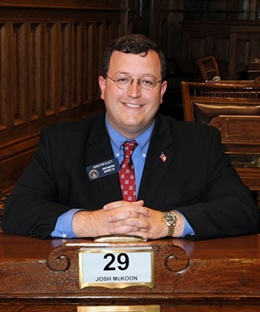 A new bill introduced in the Georgia Senate seeks to prevent campaign contributions from companies and executives doing business with the state. Senate Bill 394, introduced by Senate Judiciary Chairman Josh McKoon, prohibits contributions from business entities and affiliated persons who have contracts with the state exceeding $50,000 in the aggregate to any candidate for the office responsible for awarding such contracts.
A new bill introduced in the Georgia Senate seeks to prevent campaign contributions from companies and executives doing business with the state. Senate Bill 394, introduced by Senate Judiciary Chairman Josh McKoon, prohibits contributions from business entities and affiliated persons who have contracts with the state exceeding $50,000 in the aggregate to any candidate for the office responsible for awarding such contracts.
Just last year, DeKalb County CEO, Burrell Ellis, was found guilty of threatening to end a contract with a state vendor if it did not make a $2,500 campaign contribution.
McKoon introduced the bill after noting Georgia is lagging behind the rest of the country, and federal law, on such legislation. The bill currently only affects statewide offices, but McKoon stated he is open to making the law more robust.
Photo of Georgia State Senator Joshua McKoon courtesy of the Georgia Senate website.
February 10, 2016 •
Cleveland City Council Raises Campaign Contribution Limits for Local Candidates
Cleveland City Council voted Monday, February 8, to increase campaign contribution limits for mayoral and council candidates. After much debate, the Finance Committee agreed on a $5,000 annual limit from individuals and a $7,500 annual limit from political action committees […]
 Cleveland City Council voted Monday, February 8, to increase campaign contribution limits for mayoral and council candidates.
Cleveland City Council voted Monday, February 8, to increase campaign contribution limits for mayoral and council candidates.
After much debate, the Finance Committee agreed on a $5,000 annual limit from individuals and a $7,500 annual limit from political action committees giving to mayoral candidates. Individual contributions to council candidates were capped at $1,500 annually, with PAC contributions limited to $3,000.
The ordinance passed with three council members voting against it.
Photo of the Cleveland skyline by Eric Drost in Wikimedia Commons.
January 26, 2016 •
Cleveland City Council to Consider Raising Campaign Contribution Limits
Cleveland City Council President Kevin Kelley wants to raise the limits on political contributions in order to offer challengers a fair fight against incumbent candidates with established war chests. Individual and PAC contributions to mayoral candidates would be capped at […]
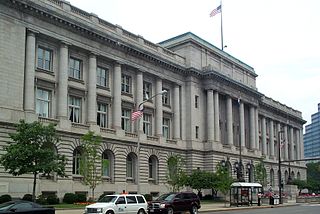 Cleveland City Council President Kevin Kelley wants to raise the limits on political contributions in order to offer challengers a fair fight against incumbent candidates with established war chests. Individual and PAC contributions to mayoral candidates would be capped at $10,000 per calendar year. The current city ordinance permits just $1,000 from individuals and $2,000 from PACs. The proposed legislation would also increase contribution limits for council candidates up to $1,500 from individuals and $3,000 from PACs.
Cleveland City Council President Kevin Kelley wants to raise the limits on political contributions in order to offer challengers a fair fight against incumbent candidates with established war chests. Individual and PAC contributions to mayoral candidates would be capped at $10,000 per calendar year. The current city ordinance permits just $1,000 from individuals and $2,000 from PACs. The proposed legislation would also increase contribution limits for council candidates up to $1,500 from individuals and $3,000 from PACs.
Critics argue the proposal would allow special interests to buy influence at City Hall. Kelley, however, believes $10,000 is not enough money to make a mayor feel beholden to a donor. Considering most Ohio cities have no campaign contribution limits, Kelley suggests a higher limit is still better than no limit at all.
The legislation will be discussed at the Finance Committee meeting on Wednesday, January 27, and will likely be up for passage the same night.
Photo of Cleveland City Hall by Stu Spivack on Wikimedia Commons.
January 20, 2016 •
NYT: President “Seriously Considering” Requiring Disclosure of Political Contributions by Federal Contractors
President Obama could soon issue an executive order requiring federal contractors to disclose political campaign contributions, according to the New York Times. On January 19, White House officials said the president is “seriously considering” the order, as reported by the […]
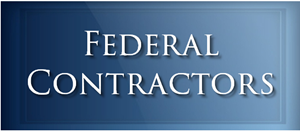 President Obama could soon issue an executive order requiring federal contractors to disclose political campaign contributions, according to the New York Times. On January 19, White House officials said the president is “seriously considering” the order, as reported by the paper. The order has been pushed by many outside groups and by Democratic members of congress, who have in the past, and as recently as January 7th, presented the president with letters urging executive action.
President Obama could soon issue an executive order requiring federal contractors to disclose political campaign contributions, according to the New York Times. On January 19, White House officials said the president is “seriously considering” the order, as reported by the paper. The order has been pushed by many outside groups and by Democratic members of congress, who have in the past, and as recently as January 7th, presented the president with letters urging executive action.
Those opposed to an executive order argue, among other things, disclosure requirements encroach on free speech and are politically motivated. “The real goal of the disclosure proponents is to harass, intimidate and silence those with whom they disagree,” Blair Latoff Holmes, a spokeswoman for the U.S. Chamber of Commerce, is quoted as saying in the Times.
January 19, 2016 •
Appeal Against Ban on Contractor Contributions Denied by U.S. Supreme Court
On January 19, the U.S. Supreme Court denied an appeal arguing against a federal law banning political contributions to candidates from federal contractors. Last year, in Miller v. Federal Election Commission, formerly Wagner v. Federal Election Commission, the U.S. District […]
 On January 19, the U.S. Supreme Court denied an appeal arguing against a federal law banning political contributions to candidates from federal contractors. Last year, in Miller v. Federal Election Commission, formerly Wagner v. Federal Election Commission, the U.S. District Court of Appeals for the District of Columbia unanimously upheld the constitutionality of the law barring contractors from contributing to candidates, parties, and candidates’ and parties’ committees.
On January 19, the U.S. Supreme Court denied an appeal arguing against a federal law banning political contributions to candidates from federal contractors. Last year, in Miller v. Federal Election Commission, formerly Wagner v. Federal Election Commission, the U.S. District Court of Appeals for the District of Columbia unanimously upheld the constitutionality of the law barring contractors from contributing to candidates, parties, and candidates’ and parties’ committees.
Plaintiffs had challenged the constitutionality of 52 U.S.C. § 30119(a)(1), which prohibits any vendors with contracts with the federal government from making political contributions to federal candidates or political parties. The plaintiffs had asked the court to declare the law unconstitutional as applied to individuals who have personal services contracts with federal agencies. Because federal workers who are not contractors may make federal political contributions while contractors performing the same work may not, the suit argued the law violates both the Equal Protection Clause of the Constitution and the First Amendment.
Photo of the United States Supreme Court by UpstateNYer on Wikimedia Commons.
January 19, 2016 •
Bill Wants Federal Officeholders to Stop Asking for Contributions
On January 19, U.S. Congressman David Jolly introduced legislation prohibiting members of the U.S. Congress from personally asking people for money. The Stop Act would ban federal officeholders from directly soliciting political contributions, but would allow them to attend fundraisers […]
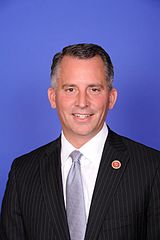 On January 19, U.S. Congressman David Jolly introduced legislation prohibiting members of the U.S. Congress from personally asking people for money. The Stop Act would ban federal officeholders from directly soliciting political contributions, but would allow them to attend fundraisers and speak to donors. As noted in Jolly’s press release, this prohibition is similar to rules controlling some state judicial elections barring candidates from personally asking for contributions. The U.S. Supreme Court recently upheld a comparable Florida Statute.
On January 19, U.S. Congressman David Jolly introduced legislation prohibiting members of the U.S. Congress from personally asking people for money. The Stop Act would ban federal officeholders from directly soliciting political contributions, but would allow them to attend fundraisers and speak to donors. As noted in Jolly’s press release, this prohibition is similar to rules controlling some state judicial elections barring candidates from personally asking for contributions. The U.S. Supreme Court recently upheld a comparable Florida Statute.
“It’s time members of Congress stop asking people for money and start doing their jobs. Let’s close the integrity gap and the performance gap of our elected officials by eliminating their fundraising solicitations and put them back to work,” said Jolly in his press release.
State lawmakers have introduced legislation to make it harder for candidates to misuse campaign contributions. So far, thirty senators have backed a measure allowing the Nebraska Accountability and Disclosure Commission to cross-check campaign finance reports with year-end balances of campaign […]
 State lawmakers have introduced legislation to make it harder for candidates to misuse campaign contributions. So far, thirty senators have backed a measure allowing the Nebraska Accountability and Disclosure Commission to cross-check campaign finance reports with year-end balances of campaign committees to ensure the proper use of campaign funds.
State lawmakers have introduced legislation to make it harder for candidates to misuse campaign contributions. So far, thirty senators have backed a measure allowing the Nebraska Accountability and Disclosure Commission to cross-check campaign finance reports with year-end balances of campaign committees to ensure the proper use of campaign funds.
The bill also prohibits loaning campaign funds and increases penalties for violations of the law. A similar bill was introduced last year but died before reaching the floor.
Sen. John Murante, the committee chair of the Government, Military, and Veterans Affairs Committee, where the bill is being held, said he will bring the bill up for discussion in the coming weeks.
January 13, 2016 •
Campaign Finance Changes Recommended in Oregon
A task force on campaign finance reform has recommended changes to the Oregon Constitution which would allow limits to be placed on political contributions. The task force urged the Legislature to make the changes by approving a constitutional amendment allowing […]
 A task force on campaign finance reform has recommended changes to the Oregon Constitution which would allow limits to be placed on political contributions. The task force urged the Legislature to make the changes by approving a constitutional amendment allowing limits to be enacted by either the Legislature or a ballot measure.
A task force on campaign finance reform has recommended changes to the Oregon Constitution which would allow limits to be placed on political contributions. The task force urged the Legislature to make the changes by approving a constitutional amendment allowing limits to be enacted by either the Legislature or a ballot measure.
Currently, Oregon is one of only six states with no campaign spending limits. The Legislature will consider the recommendation at the beginning of this year’s legislative session, which kicks off on February 1.
January 12, 2016 •
Philadelphia Ethics Board Announces New Contribution Limits
The city Ethics Board released new contribution limits for city candidates on January 11. Candidates for city offices may accept up to $3,000 in a calendar year from an individual contributor, an increase from the previous limit of $2,900. Groups […]
 The city Ethics Board released new contribution limits for city candidates on January 11.
The city Ethics Board released new contribution limits for city candidates on January 11.
Candidates for city offices may accept up to $3,000 in a calendar year from an individual contributor, an increase from the previous limit of $2,900. Groups and businesses may contribute up to $11,900 to a candidate per year, an increase of $400.
Contribution limits are adjusted every four years based on the consumer price index.
State and Federal Communications, Inc. provides research and consulting services for government relations professionals on lobbying laws, procurement lobbying laws, political contribution laws in the United States and Canada. Learn more by visiting stateandfed.com.

